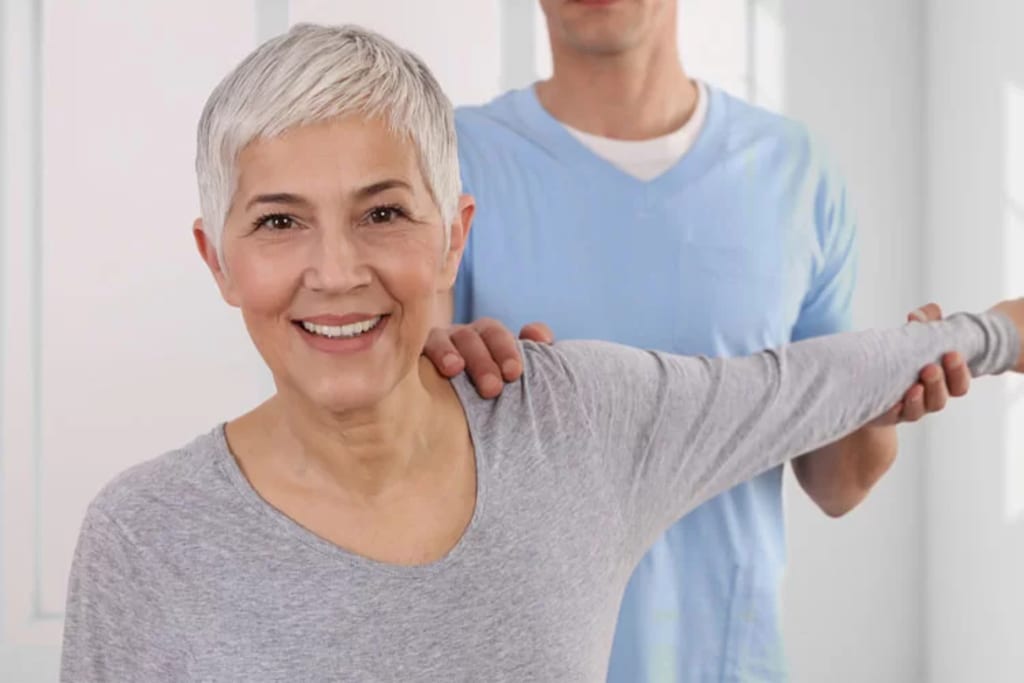The Importance of Bone Health in Women Over 50
Several factors can increase the risk of osteoporosis and other bone-related issues in women over 50

As a health scientist, it's crucial to shed light on the significance of bone health, particularly for women over the age of 50. This demographic is at a higher risk of developing osteoporosis and other bone-related issues, which can severely impact their quality of life. Understanding the factors that contribute to bone health and adopting preventive measures can make a substantial difference.
Understanding Bone Health
Bones are living tissues that constantly remodel themselves. This process involves the breakdown of old bone and the formation of new bone tissue. However, as we age, this balance can be disrupted, leading to a gradual loss of bone density. For women over 50, this process is often accelerated due to hormonal changes associated with menopause, which significantly reduce the production of estrogen, a hormone that helps protect bone density.
Risk Factors for Poor Bone Health
Several factors can increase the risk of osteoporosis and other bone-related issues in women over 50:
Hormonal Changes: As mentioned, the decrease in estrogen levels during menopause is a major factor.
Nutritional Deficiencies: Inadequate intake of calcium and vitamin D can impair bone health.
Physical Inactivity: Sedentary lifestyles can lead to weaker bones.
Genetics: Family history of osteoporosis can increase risk.
Lifestyle Choices: Smoking and excessive alcohol consumption can negatively impact bone health.
The Importance of Nutrition
Adequate nutrition is paramount for maintaining healthy bones. Calcium and vitamin D are the cornerstones of bone health. Calcium is essential for bone formation and strength, while vitamin D helps the body absorb calcium. Women over 50 should aim to include calcium-rich foods such as dairy products, leafy green vegetables, and fortified foods in their diet. Additionally, vitamin D can be obtained from sunlight exposure, fatty fish, and fortified foods.
Exercise and Bone Health
Regular physical activity is crucial for maintaining bone density and strength. Weight-bearing exercises, such as walking, jogging, and resistance training, are particularly beneficial. These activities stimulate bone formation and help maintain bone mass. Incorporating balance and flexibility exercises, such as yoga and tai chi, can also reduce the risk of falls and fractures.
Lifestyle Modifications
Adopting a healthy lifestyle can significantly improve bone health. This includes quitting smoking and limiting alcohol consumption. Smoking has been shown to accelerate bone loss, while excessive alcohol intake can interfere with the body's ability to absorb calcium.
Medical Interventions
For some women, lifestyle and dietary changes may not be sufficient to prevent significant bone loss. In such cases, medical interventions may be necessary. Bone density tests, such as dual-energy X-ray absorptiometry (DEXA), can help diagnose osteoporosis early. Depending on the results, doctors may prescribe medications that can help strengthen bones and reduce the risk of fractures.
Additional Tips for Optimal Bone Health
Maintain a Healthy Weight: Being underweight can increase the risk of bone loss and fractures. It's important to maintain a healthy weight through a balanced diet and regular exercise.
Limit Caffeine Intake: Excessive caffeine consumption can interfere with calcium absorption. Try to limit your intake of caffeinated beverages and opt for water, herbal teas, or milk instead.
Monitor Bone Health Regularly: Regular check-ups and bone density tests can help monitor your bone health and catch any issues early on. This allows for timely interventions and better management of bone health.
Consider Supplements: If you find it difficult to get enough calcium and vitamin D from your diet alone, consider taking supplements. Consult your doctor to determine the appropriate dosage and type of supplement for your needs.
Conclusion
Bone health is a critical aspect of overall well-being for women over 50. By understanding the risk factors and adopting a proactive approach that includes proper nutrition, regular exercise, and healthy lifestyle choices, women can significantly reduce their risk of osteoporosis and other bone-related issues. Early detection and appropriate medical interventions can further enhance bone health, allowing women to maintain their mobility and quality of life well into their later years.
Thanks your read
About the Creator
Alex Huang
My name is Alex Huang, i am a dedicated researcher in the field of physical and mental health, actively working in the healthcare sector. With a strong focus on the interplay between physical activity, mental well-being, and overall health.
Enjoyed the story? Support the Creator.
Subscribe for free to receive all their stories in your feed. You could also pledge your support or give them a one-off tip, letting them know you appreciate their work.






Comments (1)
valuable information about bone health for women over 50.